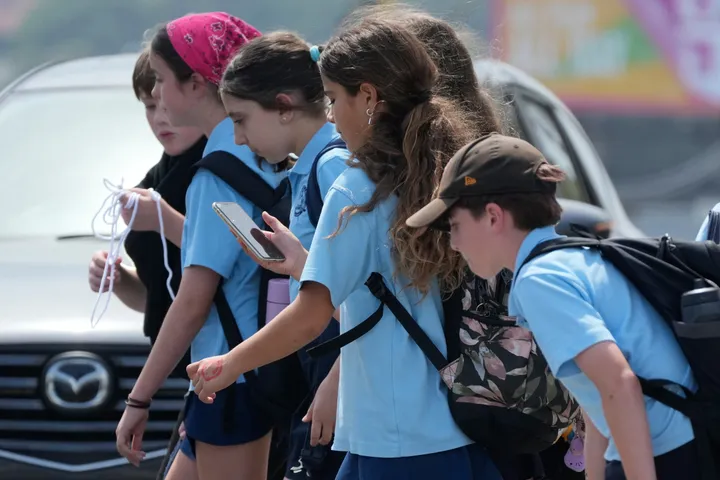By Sylvia Chebet
Um Adel, a Sudanese refugee biding time in the Metche camp in eastern Chad, hasn't seen her husband in over a year.
"He's missing, and I don't know where he is," she says.
"Our son Khalid was fine until food became scarce. After a day or two of not eating well, he had a high fever. I don't feel comfortable here, and the situation isn't good...I want to go back to Sudan."
As a New Year dawns, Um Adel hopes that a semblance of normalcy will return to her homeland, ravaged by fighting between the Sudanese army led by Abdel Fattah al-Burhan and the paramilitary Rapid Support Forces (RSF) headed by Mohamed Hamdan Dagalo.
The internal conflict in Sudan erupted on April 15, 2023. Around 60,000 lives have been lost since. The number of displaced exceeds 14 million. At least 26 million are battling severe food insecurity.
By all accounts, Sudan is the world's largest humanitarian crisis. Yet, 2024 went by and the world barely took notice as theatres of war elsewhere, such as Israel-Palestine and Russia-Ukraine, hogged the headlines.
Homeless millions
More than 3.2 million Sudanese have crossed the border into the neighbouring countries of Chad, South Sudan, Ethiopia, Central African Republic, Egypt and further afield to Europe and the Middle East.
What began as a clash in Khartoum is now a litany of airstrikes, heavy artillery bombardments and gunfire raging across the country for 20 months.
According to the United Nations and many human rights groups, the conflict has been marked by atrocities, including ethnically motivated killings and rapes.
The International Criminal Court (ICC) is investigating alleged war crimes and crimes against humanity. There's not enough food or clean water. Children are severely malnourished.
Diseases are spreading. Hospitals are far and unsafe. Help is delayed.
"This grave crisis — a crisis of human rights, a crisis of humanitarian needs — passes largely unobserved in our international community," says the UN High Commissioner for Refugees, Filippo Grandi.
He believes that even before the genocidal pummelling of Gaza by Israel grabbed eyeballs, the war in Sudan had been "marginalised" despite its massive impact.
Grandi condemns the "deficit of interest in crises in Africa”, like those in the Democratic Republic of Congo and the Sahel, as "frightening and shocking".
He questions the outlook for Sudan even if the fighting stops anytime soon.
"What's the future for a country like Sudan, devastated by war?" Grandi asks, concerned that the Sudanese middle class that "held the country together" has been completely destroyed.
"They know that it's over. They have lost their jobs, their homes have been destroyed, and they have all seen their family members and relatives killed. It's atrocious," he laments.
Ravages of hunger
As political solutions for the crisis stagger, famine is spreading, and malnutrition has reached catastrophic levels in many parts of the country.
Integrated Food Security Phase Classification (IPC), a marker used by over a dozen UN agencies, aid groups and governments as a global reference for analysis of food and nutrition crises, indicates that the war in Sudan is "deepening and widening" food insecurity of the scale of a famine.
The hunger monitoring group detected famine in five areas, including Sudan's largest displacement camp, Zamzam, in North Darfur province.
Dervla Cleary, a senior emergency and rehabilitation officer in the UN Food and Agriculture Organisation, reports that 638,000 people are experiencing famine.
"The situation in Sudan is just awful. It is unacceptable in a world like today," she says.
In the past 15 years, Sudan is the third African country after South Sudan and Somalia to have been classified as a famine zone.
Healthcare mess
Médecins Sans Frontières ((MSF), also known as Doctors Without Borders, has treated more than 40,000 malnourished children across Sudan.
The international organization set up inpatient therapeutic feeding centres in North Darfur's Zamzam camp, Darfur's El Geneina, Nyala and Rokero, and in eastern Chad, where many refugees live.
"Children are dying of malnutrition across Sudan. The help they most urgently need is barely coming, and when it does, it is often blocked," says MSF's emergency coordinator in Darfur.
"In July, for instance, trucks with MSF supplies were blocked from reaching their destinations in Darfur. RSF held two trucks, and unidentified armed men seized one."
The World Health Organisation (WHO) notes that the conflict has put nearly 80% of the healthcare facilities out of service, crippling an already struggling health system.
Facilities under siege
In El Fasher alone, MSF-supported facilities were attacked 12 times, and only one public partially functional hospital was able to conduct surgeries since fighting escalated in the city in May.
"MSF tries to fill some of the gaps. In many places, we are the only international organisation operating. We cannot tackle this huge crisis alone. We are struggling to get supplies and staff to our projects," says Esperanza Santos, MSF's emergency coordinator in Port Sudan.
"A meaningful response with aid reaching people who need it most must start now. There is no more time to waste."
There has been an uptick in malaria cases and water-borne diseases, with cholera outbreaks now officially declared in at least three states.
The threat of vaccine-preventable diseases among children, such as measles, is looming, with the war putting immunisation campaigns on hold.
The situation is not any better in the neighbouring countries to which thousands of Sudanese have fled.
With lives, livelihoods and the future of the country at stake, the one thing that the suffering millions are clinging to is the promise of positivity that every New Year brings.
➤Click here to follow our WhatsApp channel for more stories.























